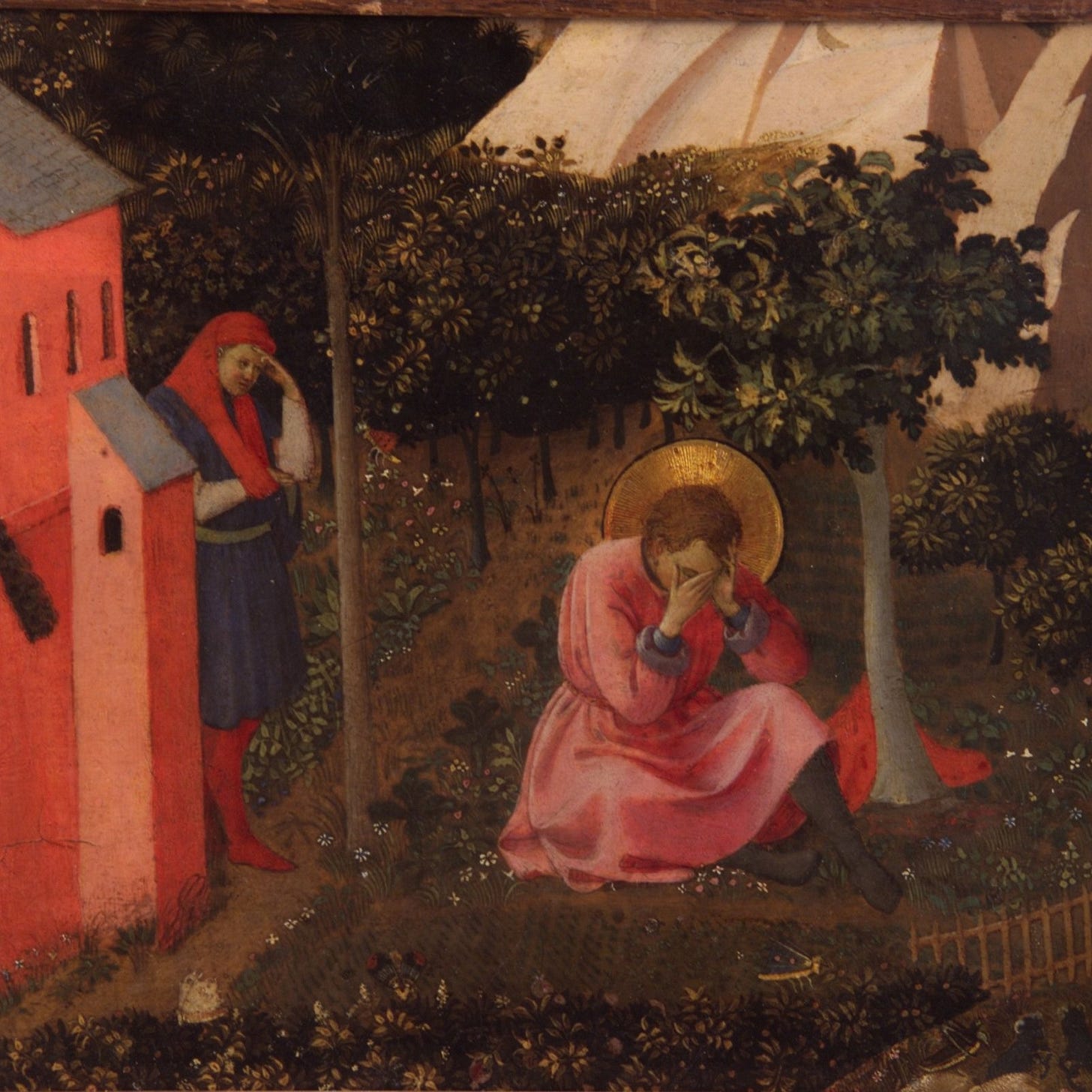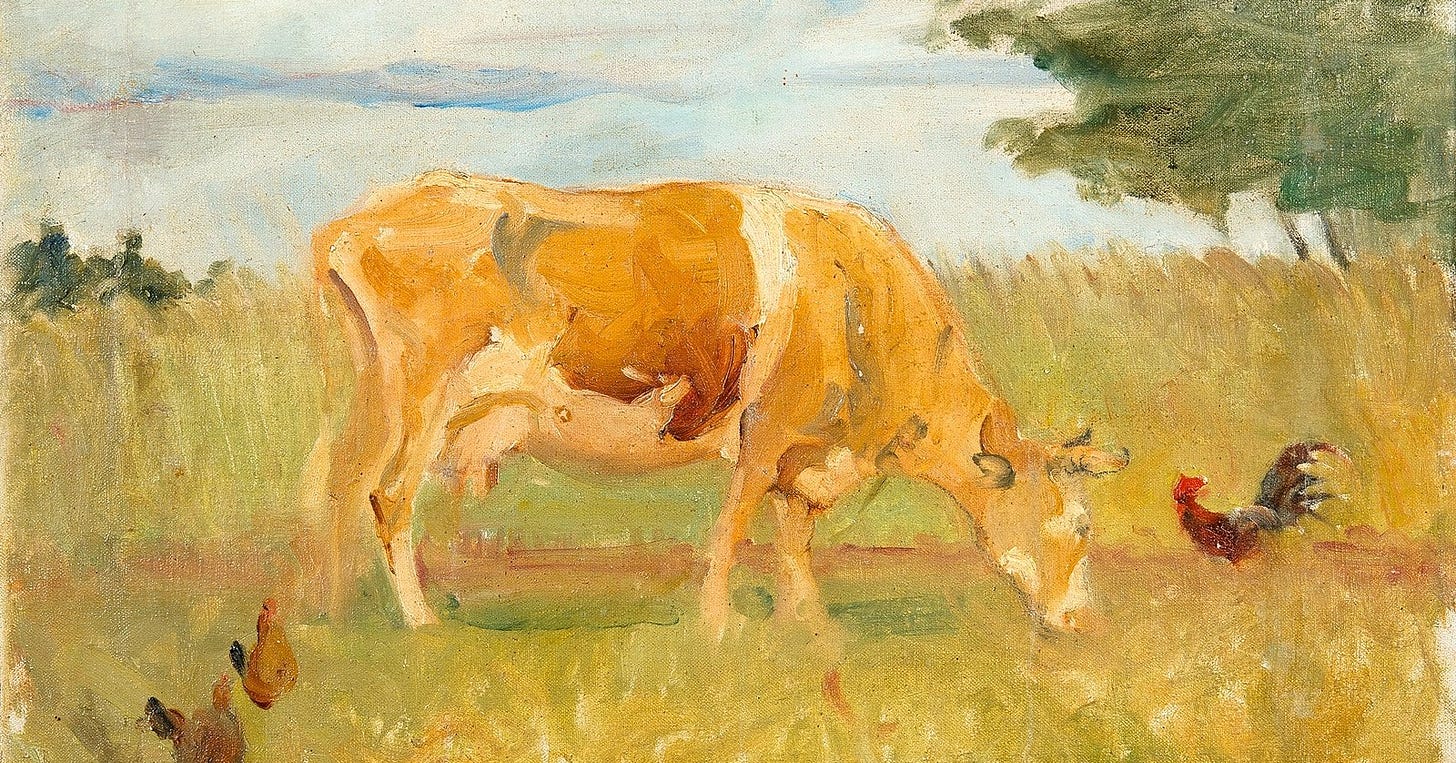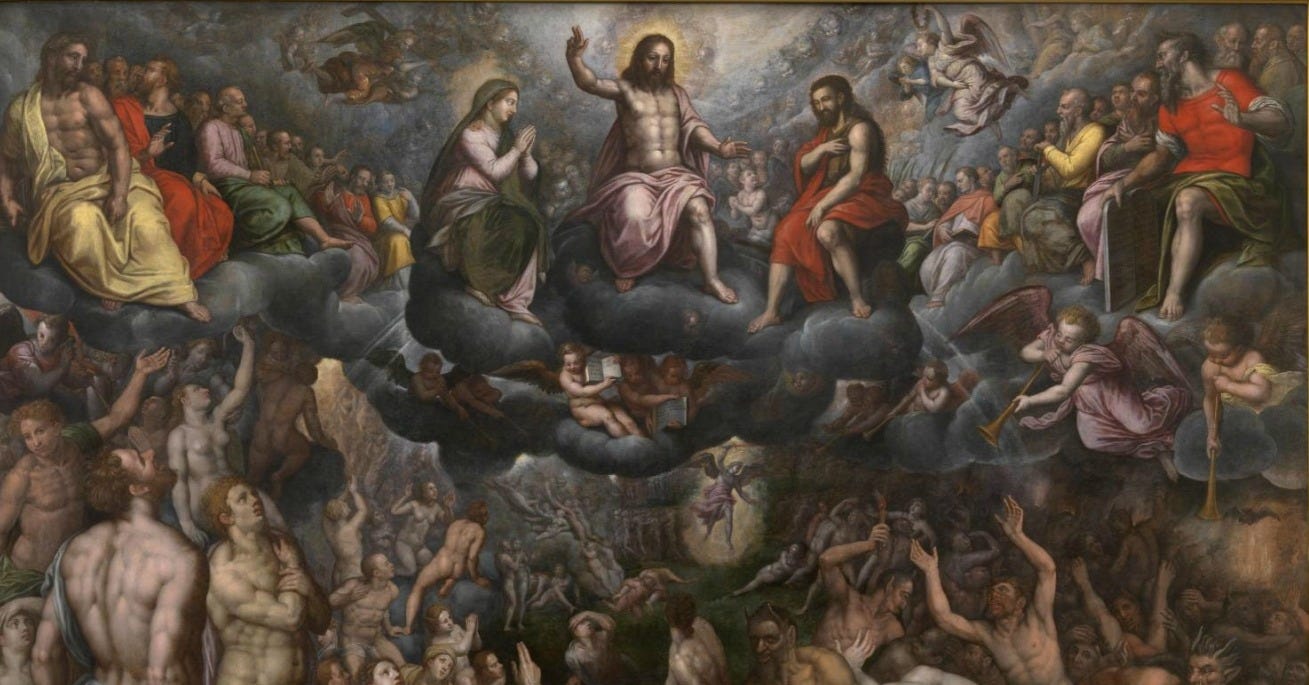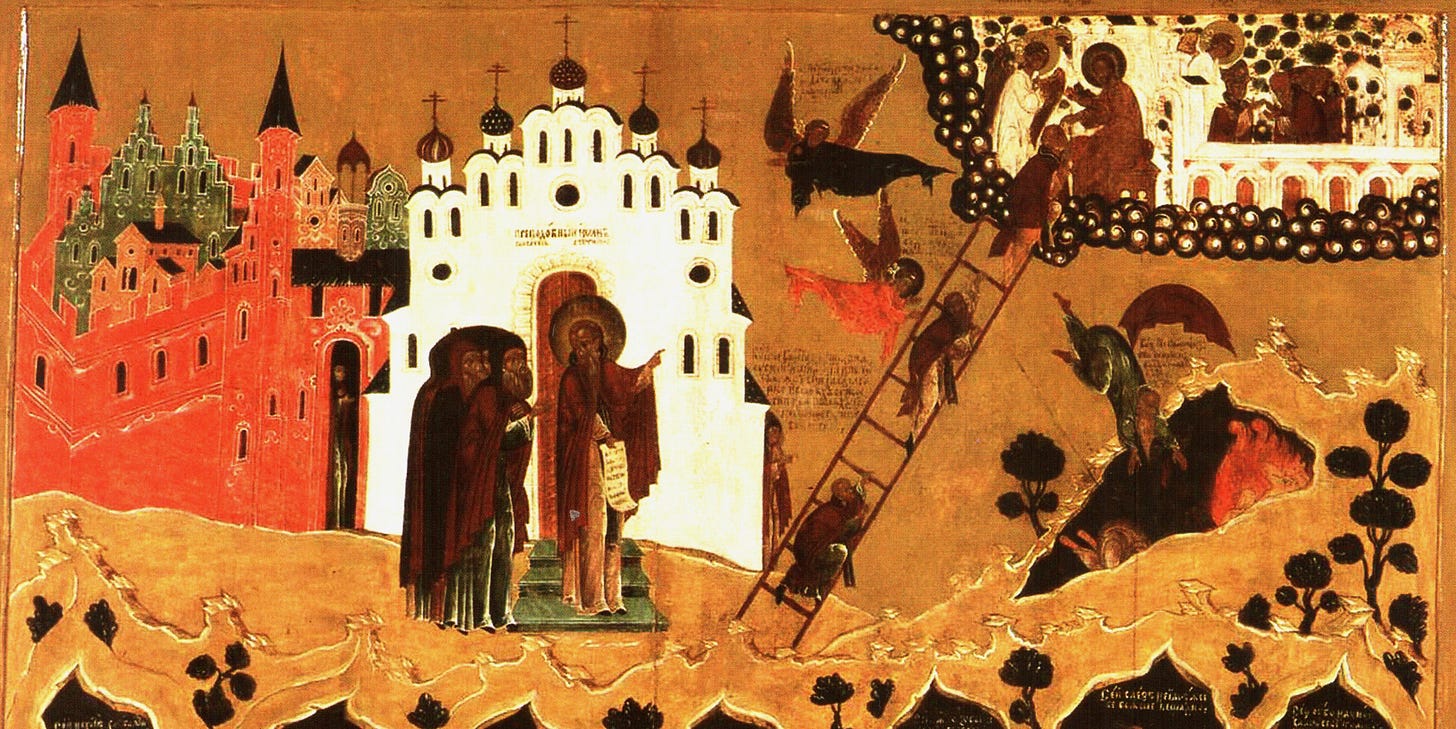The Unseen Tyrant of Your Soul
Many in free societies live in chains...
Many people who live in free societies live in slavery. You may think the greatest threat to your liberty is an external threat, like the government or corporations, but an unseen tyrant holds your soul in chains.
Everyone from Plato to St. Paul stands ready to warn you what this tyrant will do to your soul. It will have you living a life less worthy than cattle—head down, focused on pleasure, never lifting up to ascend to a better life.
Some of the greatest saints in Christian history, like St. Augustine, have battled this tyrant—and now their victories show you how to break the chains and ascend.
Reminder: you can support our mission and get all our members-only content for just a few dollars per month:
New, full-length articles every Tuesday and Friday
The entire archive of members-only essays
Access to our paid subscriber chat room
Know Thyself: The Soul & Its Loves
How good would you be at fixing an engine if you did not understand the function of the parts? Well, this is true of the soul as well. You cannot make the soul beautiful, if you do not understand it. This is why the first principle of the life of virtue is to know thyself.
St. Augustine, drawing from the Platonic tradition, holds there are three parts to the soul. The highest is your intellect, and it loves the truth. The second is the spirited, and it loves nobility—glory, honor, and excellence. And the third and lowest part is the appetitive, and it loves pleasure—especially in food and sex.
Plato and Christians agree that the soul is made beautiful by virtue (arete). Prudence helps the intellect seek truth, courage helps the spirited seek nobility, and temperance helps the appetitive moderate pleasure. Justice, however, adorns the whole soul and makes it well ordered—with all its parts and loves in harmony. The beautiful soul is a virtuous soul, and the virtuous soul is a Christ-like soul.
Vice: A Life Worthy of Cattle
In the Republic, Plato has Socrates tell us that virtue is a type of health and beauty of the soul, but vice, its opposite, is a type of sickness and ugliness of the soul. Under vice, the soul becomes disordered. The soul should exist in hierarchy, with the intellect leading with the assistance of the spirited—and both keeping the appetitive in check. The appetitive part, if not bridled, will invert the whole soul—shoving the desire for truth to the bottom, and the desire for pleasure to the top.
For, as Aristotle states, man is the worst animal when it comes to food and sex.
Socrates warns that this leads to a life like cattle. Your appetitive part of your soul, if left untamed, will make you live like a cow—only caring for pleasure. In fact, you become worse than a cow, because you take your own intellect, a divine gift, and pervert it in service of your lower appetites. It is an unnatural state for man—but a very common one.
The Slavery of Vice
A soul that falls into vice falls into slavery. The appetitive part ruling the soul is the most common, but there are many ways for a soul to fall into disorder and thus cast itself in chains. And, as St. Augustine teaches, the disorder that comes from sin is its own punishment. It is a self-inflicted sickness; yet, like an addiction, it is a sickness that will place your soul in chains.
In the first dialogue that students of Plato would read, First Alcibiades, Socrates warns the young Alcibiades that his vices will make him a slave. The unseen tyrant that will dominate the soul is the soul itself—a malformed soul, a soul with disordered loves.
What the young Alcibiades does not understand is that he can live within one of the most prosperous, free cities in the world—Athens—but be a slave. You can sacrifice your own liberty to love what is good by chaining yourself to what is evil. Your loves bind you. Will you be bound to what is beautiful or to what is ugly?
Your disordered soul is a self-tyrant. You live in slavery to your own disordered appetites and vicious (meaning “has vice”) inclinations. You are your own tyrant.
St. Paul understood this well. Sin casts the soul in slavery. It leads only to death (Romans 6:16-20). Socrates implores Alcibiades to leave his vices and pursue what is good. St. Augustine had to learn how to order his loves and escape the chains of his lust—a story he tells well in his Confessions.
Plato, however, could only observe the natural—he had no access to divine revelation. Christians, however, understand that man’s nature is wounded, and that Jesus Christ offers grace—participation in the divine life—that both heals and elevates human nature to the super-natural (what is above nature).
Plato’s Myth of the Final Judgment
Christianity teaches that the soul will be judged after death. Each person is judged immediately upon death (particular judgement), and also that God will judge all of humanity at the end of time (final judgment)—most famously expressed in the story of the sheep and the goats being separated according to how they cared for the weak and vulnerable (Matt 25).
But did you know Plato had his own myths about how the soul would be judged?
One of Plato’s most famous myths comes at the end of his Gorgias. He states that it used to be that persons were judged before they died, but this caused chaos—because the judges judge on outward appearances and not the quality of the soul. As such, virtuous men were punished, and vicious men rewarded.
So, Zeus reworked the process to where dead judges would judge dead people. Stripped of their bodies, the judges could observe the soul of the deceased. Here, Plato makes an incredible claim—as the tyrant beats his slave, so too does the unjust man beat his soul.
At the end of life, the unjust man, the vicious man, presents his soul to be judged, and it is found bruised, battered, and beaten. The vicious man was a self-tyrant. He lived in chains and self-slavery.
Break the Chains & Ascend to the Divine
The unseen tyrant that has you living in slavery is you. Every time you allow your desire for pleasure to dictate your life your soul is disordered, and you forge your own chains and abuse your own soul. As the tyrant beats his slave, so do you beat your soul when you fall into vice.
But you were made for so much more. Your soul was made to be free. It was made to ascend, to soar to celestial heights and experience God. Christians teach that the “truth will set you free” and that “Jesus is the Truth.”
It is only through Jesus Christ that the soul can be healed and lifted up to divine life.
PS
Want to better understand how to conquer this unseen tyrant? Check out the conversation over at Ascend on First Alcibiades with Dcn. Garlick, Alec Bianco, and Athenian Stranger discussing the pursuit of wisdom, “know thyself,” and breaking the chains of vice. Climb higher!
Dcn. Harrison Garlick is a deacon, husband, father, Chancellor, and attorney. He lives in rural Oklahoma with his wife and five children. He is also the host of Ascend: The Great Books Podcast. Follow him on X at Dcn. Garlick or Ascend.







Another great read.
The unseen tyrant is the soul turned upside down.
When appetite takes the throne, the higher part that should receive light and give measure is forced to serve what it was meant to rule. The result is not freedom but a slow animalizing of life. You feel it as drift and compulsion, the mind enlisted to justify the next craving.
This interior collapse mirrors a wider pattern.
When the link between heaven and earth loosens, forms lose their clarity and the flood rises. In a person, that flood is the swirl of ungoverned desire washing. It is worshipping the animal part - the golden calf.
The cure is not technique piled on top of appetite - the most widespread mistake today.
Instead, it is a reordering of love in which meaning again precedes matter. Grace does this from the inside out. It gathers what is scattered, restores hierarchy, and makes the soul luminous. Prayer, family time, songs, art, etc., are all ways of achieving this balance. This makes freedom more than a political right.
It makes freedom a felt harmony of a being ruled from above.
Fascinating take. Thank you. It seems addiction is a perfect this-world example: what initially gave pleasure comes to viciously tyrannize the pleasure seeker.